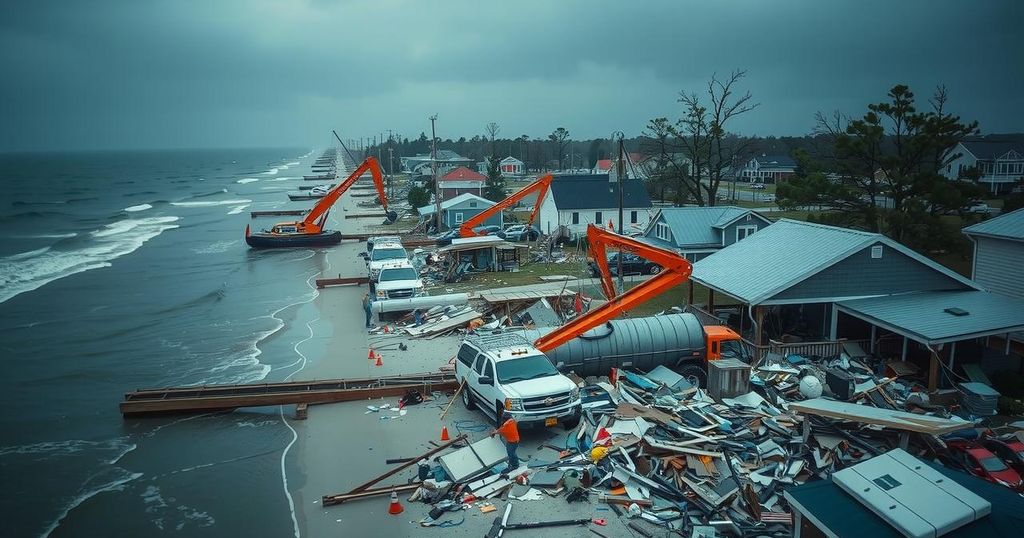Weather
World news
AFRICA, ATLANTIC, CLIMATE, CLIMATE PREDICTION CENTER, DUCK, EVACUATIONS, ISLAND FREE PRESS, MATTHEW ROSENCRANS, NATIONAL WEATHER SERVICE, NATURAL DISASTER, NATURAL DISASTERS, NOAA, NORTH CAROLINA, OUTER BANKS, POWER OUTAGES, PREDICTION CENTER, RICK SPINRAD, ROSENCRAS, SPINARD, WEATHER
Sofia Rodriguez
0 Comments
Recap of the Active 2024 Atlantic Hurricane Season Impacting North Carolina
The 2024 Atlantic hurricane season ended with 18 named storms, including 11 hurricanes. Hurricane Helene was particularly destructive, resulting in over 150 fatalities and extensive damage in North Carolina. NOAA enhanced forecasting efforts this season, aiding in timely warnings and improved response strategies. The season underscored the necessity of continued advancements in hurricane science and community preparedness.
The 2024 Atlantic hurricane season concluded with a total of 18 named storms and witnessed significant impact in North Carolina, particularly the Outer Banks. Eleven of these storms reached hurricane status, with five classified as major hurricanes. NOAA’s end-season summary noted that while forecasts predicted eight to 13 hurricanes, 2024’s activity fell within expected ranges. Among the noteworthy storms was Hurricane Helene, classified as Category 4, which devastated parts of the southeastern United States and became the deadliest hurricane since Hurricane Katrina, causing over 150 fatalities and damages exceeding $58 billion across 25 counties. Another significant development was Hurricane Milton, which achieved rapid intensification resulting in a severe tornado outbreak in Florida. Notably, NOAA advanced its hurricane forecasting techniques, enhancing predictive capabilities through improved modeling and data collection efforts, including the use of Hurricane Hunter aircraft. Overall, the season reinforced NOAA’s critical role in safeguarding communities against increasingly severe weather events.
The Atlantic hurricane season runs from June to November, with its peak typically occurring in September. Over the years, hurricanes have become more frequent and severe, prompting increased attention to forecasting and preparedness activities. The National Oceanic and Atmospheric Administration (NOAA) plays a vital role in monitoring these storms, providing essential data for forecasters and local officials. The 2024 season was particularly active, highlighting NOAA’s efforts to enhance predictive models and improve response strategies following the immense impacts of these storms.
In summary, the 2024 Atlantic hurricane season was marked by notable storms, particularly Hurricane Helene, which caused catastrophic damage in North Carolina and surpassed previous records for fatalities and financial costs. Innovative forecasting improvements and data collection methods by NOAA played a crucial role in mitigating potential impacts of these natural disasters. As climate patterns evolve, continued advancements in hurricane forecasting will be essential for safeguarding communities in the years to come.
Original Source: islandfreepress.org




Post Comment